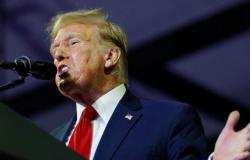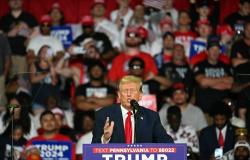Nelson Mandela’s party lost more than 17 percent of the vote in one legislature.
The ruling party is thus paying for the general mismanagement of the country and its inability, in particular, to curb unemployment, particularly among young people, which is flirting with the 60% mark.
The weight of this youth, the “born free” who did not experience the time of the struggle against the apartheid regime and do not have this visceral attachment to the party which led this historic struggle, was decisive in this election.
South Africa: General elections full of dangers for the ANC
Faced with this clear observation, the ANC, which remains by far the main party in the South African parliament, confirmed on Sunday its intention to begin discussions with other political groups to form a coalition government. “The ANC is committed to forming a government that reflects the will of the people, is stable and capable of governing effectively,” declared Fikile Mbalula, its secretary general, specifying that the party would hold discussions internally and with other groups “the coming days”.
The ANC doesn’t have much choice
The ANC will therefore have to come to terms with the exercise of power sharing. Two possibilities are available to him, either find one or more partners who will allow him to compose a majority coalition government in parliament, or form a minority government by ensuring piecemeal support from parties for the election of the president. (elected by parliament) and to pass its budget and bills.
The most obvious would be a coalition with Mr. Steenhuisen’s party, the Democratic Alliance, which has remained stable and is flirting with 21%. Behind-the-scenes negotiations have begun between these two parties, the union of which would give a large majority to the future coalition. The discussions will not be easy but the ANC does not have much choice of weapons. Behind the Democratic Alliance, only the MK party launched less than a year ago by former president Jacob Zuma can offer a real absolute majority to the ANC. His party, mainly supported by the Zulu ethnic group, won 14% of the votes. But reconciliation between current President Cyril Ramaphosa, who is eyeing a second term, and his predecessor Jacob Zuma seems more than unlikely.
South Africa: Political Assassinations Worry
Jacob Zuma was forced to resign from the presidency of the Republic in 2018 following various corruption cases and pressure from Cyril Ramaphosa’s camp within the ANC. Jacob Zuma has not forgotten this and does not intend to take a step towards his former party as long as Ramaphosa, who remains very popular despite the election, remains in power.
Another alliance route leads to the EFF, a far-left and anti-white party, of another former member of the ANC, Julius Malema. But this union, with the fiery former youth president of Nelson Mandela’s party, has everything to scare away investors in this country already marked by a serious economic crisis. This marriage, moreover, would offer a majority which would have to be reinforced by one or other small party to reach a very narrow majority.
The marriage with the Democratic Alliance is therefore almost inevitably imposed on the leaders of the ANC who will have to learn to compose and will have to relinquish important ministries to their new ally.
What do you think of this article?
Be the first person to review this item.






